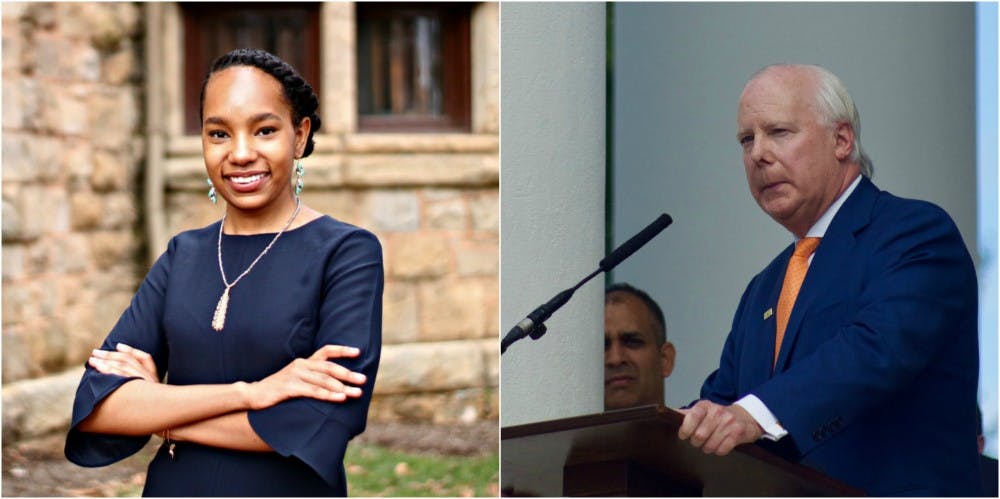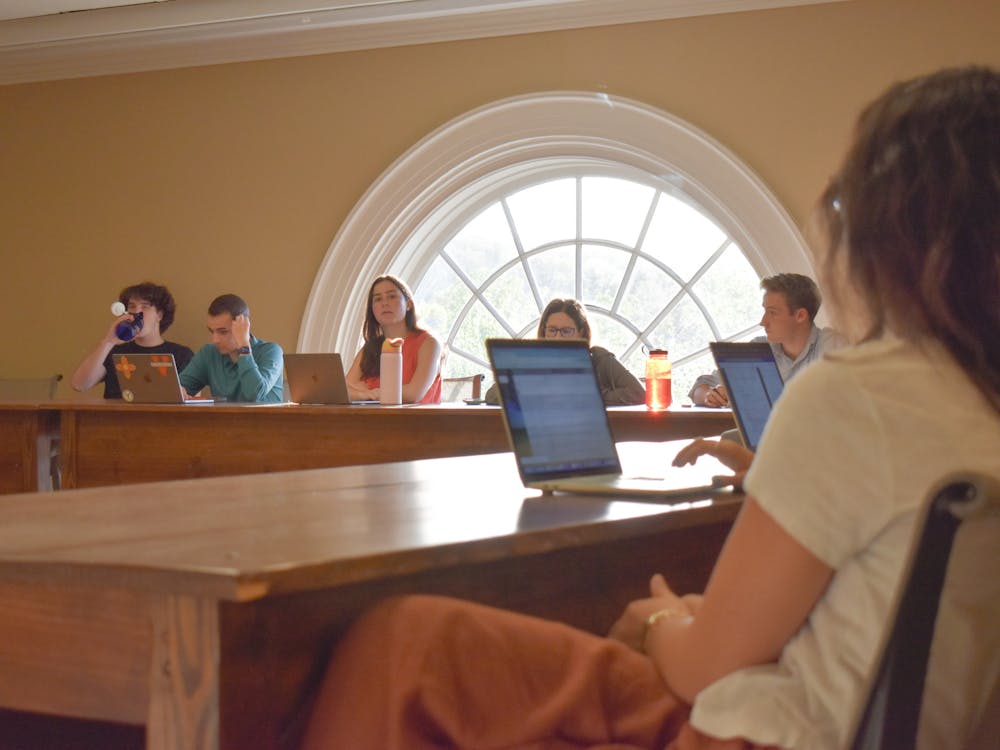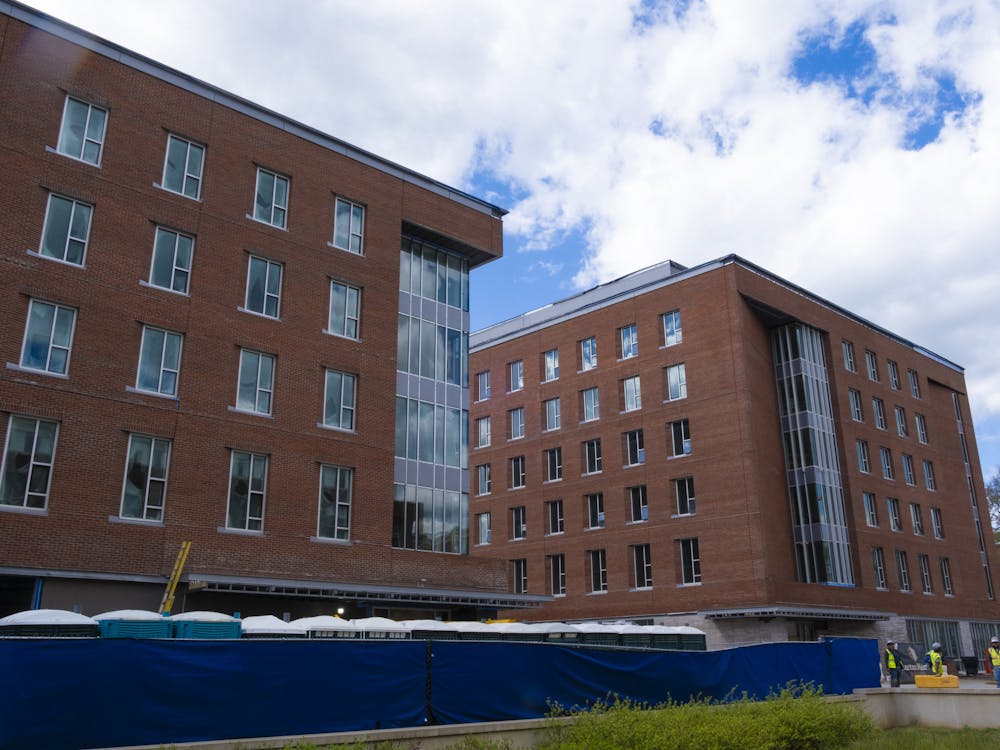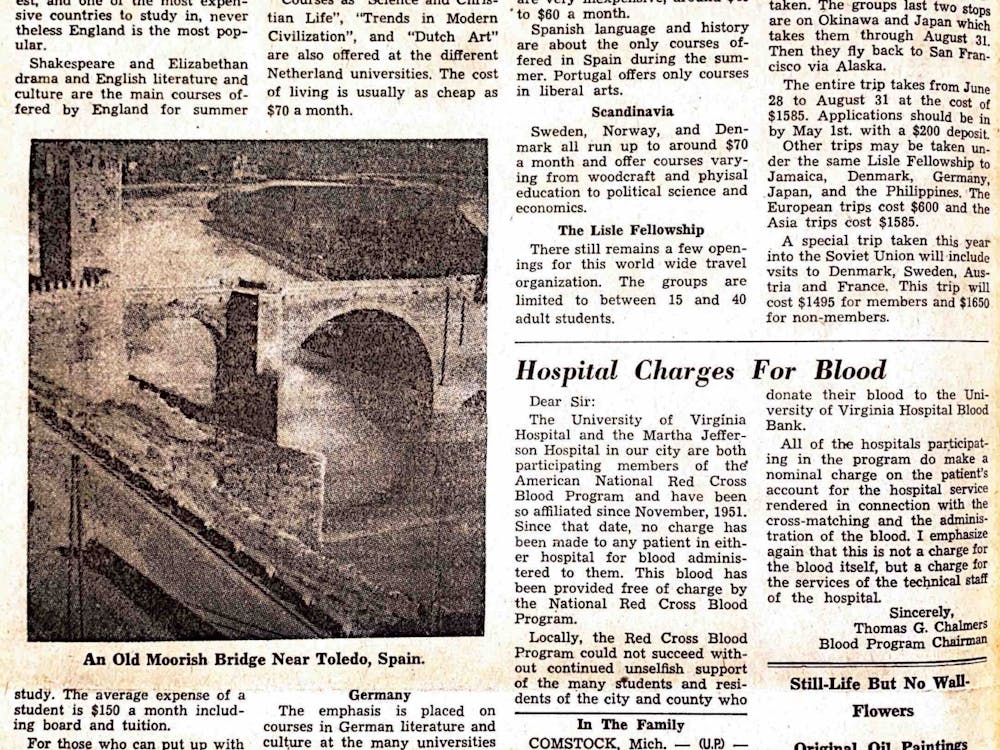The University’s Board of Visitors had a busy day Friday, electing Harvard dean James E. Ryan as the University’s next president and voting to remove the 114-year-old Confederate plaques from the Rotunda.
The Board also voted to designate the Academical Village as an official University facility, which will allow the University to prohibit the possession of firearms at areas included in the village, such as the Lawn, the Rotunda and the Range. A resolution was also passed that will allow for a stricter enforcement of the University’s open flame policy, meaning that the University can ban open flames without a permit on the Lawn.
Senior Associate News Editor Kate Bellows sat down with Bryanna Miller, a fourth-year College student and the student member of the Board of Visitors, and Rector Frank M. Conner III to discuss key moments from the day and their importance to the legacy of the University.
__________________________
Kate Bellows: A lot has happened today. A lot has been passed today. Is there anything you would like to say right now, before I get into questions?
Frank M. Conner III: I would divide up the resolutions that we adopted today into really two categories. First relates to security measures in light of Aug. 11. The second relates to positioning the University for the future so that we can become the great, great University we desire. It’s all a part of our Bicentennial Celebration, it’s all a part of [our] goals for our third century. Everything that we did today and in these last couple of days, whether it’s on finance, on dealing with symbols, on the Deans Working Group efforts, that all relates to the positioning of the University so we can ultimately achieve our ambitions.
Bryanna Miller: I think the measures that we passed this afternoon really showcase the level of coordination and agreement that we have and the trust that we have in the Deans Working Group, because we’ve entrusted them with so much authority. The resolutions that came forward were developed in collaboration with that group, which I also serve on. I think that what students can come to expect is that same level of coordination, that same level of singularity of vision, across the board as we begin to take more actions toward creating — as [Conner] said — the great, great University that we know that we can make.
Bellows: What qualities do you believe James Ryan has that will make him a successful president?
Conner: At lunch, I summed up all that we were looking for in two characteristics. One, go find the person with the biggest mind and go find the person with the biggest heart. And that’s what we did. Whatever traits you want to ascribe to those general groupings, he has. He is someone who is extraordinarily intelligent, extraordinarily thoughtful, engaging with everyone and really believes in service — both as an individual and as to what a public institution such as the University of Virginia can do through educating the citizenry so that everyone has an equal opportunity alike. That really is his passion and that is what attracted us to him because it so aligns with what we want to accomplish in this third century. He’s really quite remarkable. He did not want to be president of a university. He only wanted to be president of this University, because he felt like the mission orientation and the platform as a public university would allow him to significantly impact higher education in this country.
Miller: I think to illustrate those two points, I had the opportunity to meet with him for the first time a few weeks ago, and the first question that he asked me was, ‘How are students feeling after this week’s events?’ And the second question he asked me was, ‘What is the University doing and what could they be doing better?’ You can see the combination of the heart — how are students feeling? — and the mind — what can the University be doing?
Bellows: How do you feel like he’ll build on [University President] Teresa Sullivan’s legacy?
Conner: He said on the steps of the Rotunda today that he’s not going to lay out a vision until he got here and really dealt with people and the University. There are parts of the University he doesn’t know. He loves it overall, but his focus was quite honestly the Law School. I think what President Sullivan has done in a time when we’ve had lots of other issues, most of which were not within our control, is, if you look at the fundamental foundations of this University, in every respect they’ve improved and in most respects they’re strong. What he wants to do is to take that strength and orient the University so that we’re more effective at the student experience and therefore achieve what we’re after, which is developing citizen leaders in lots of different substantive areas. How he’s going to go about doing that we’ll leave up to him in due course. But the trajectory of the University and the goals of the University hasn’t changed. It is a question of how you ultimately build upon the strengths that we have.
Bellows: The BOV just voted to remove the Confederate plaques. What was it like in the room when that announcement was made?
Conner: It was a unanimous decision by the Board. People certainly have various views as to why we should do it, and I laid out mine as to why we should do this. I think people were recognizing that it was clearly the right thing to do from a moral perspective and a moral authority. They felt good about doing it. They realized that we would be criticized in some corners, but they understood that that comes with the territory if you’re going to make tough decisions. I think later on when Bryanna reacted in her comments to the action of the Board, how could anyone take issue with what we did?
Bellows: Bryanna, I understand that you got emotional during the announcement. What was your reaction to hearing it?
Miller: I tried to say this then, but I don’t know if it came through clearly — for the last 110 years, students have had their experiences bookended by these symbols in that you face them when you dedicate yourself to the values of the University during Fall Convocation, and they’re at your back when you leave the University as a graduate. I think that this decision is important in many ways, but it is really particularly important in that we are finally placing them where they belong. And that’s not at the center of our University any longer. I knew that it took a lot of courage for the Board to do that, and I commend the Rector for his leadership in getting the entire board on board. But I was just reflecting, isn’t it so amazing that we are finally making the right decision, the right choice? I think we are moving out of the symbolic action, with the concert and with the vigil, and I think we are moving even further into the action phase. With this action, we’ve demonstrated that the Board is going to support the University in its efforts to progress.
Bellows: How does the University have moral authority and what does moral authority mean?
Conner: From my perspective, you can have all the wonderful verbiage about how you want to be an inclusive community and how you want to attract a diverse community, but if there are things like those plaques — which to many students there’s oblivion in their minds as to what those plaques represent — but to a student of color, they understand what those plaques represent. If they say, we want to be a diverse, engaged, pluralistic community, and we know that those plaques have that symbolic impact on our students and faculty of color, and we don’t do anything about it, we don’t have moral authority. Moral authority is taking actions that support your vision that may not necessarily be popular in some quarters of the world.
Bellows: How do you see progress moving forward in relation to the removal of the Confederate plaques, in declaring the Lawn a facility and all the other initiatives that were passed?
Conner: I think part of that is safety related, and so that’s helpful. But I think Bryanna articulates it very well, that we’re moving out of the symbolic phase, into the substantive phase. I did not say this as squarely as I’m going to now, but we can’t get to the substantive phase if we’re still fighting over these symbolic issues. You need to take the actions on the plaques and on whatever else you need to deal with, so that you can begin to have the substantive dialogue that we need to have on all of the other issues that have been raised and are intractable issues in our society. We’re under no illusion that this is going to be easy, because a lot of these things we have no control over. But you can at least get to the point of getting people past what I call the “passionate protest,” which ultimately relates to the worst feelings of those who may disagree with your position, to what I call the “productive progress” phase. That’s where we need to be.
Miller: As I mentioned earlier, I think the Working Group is going to have a huge, huge role to play in determining what our next steps in acknowledging the Civil War’s impact on the University in particular [should be], but also on developing those academically, culturally-oriented solutions. We recognize that we have to look internally at some of the conditions that exist at the University that are more tangible. What are we doing on admissions and diversity, et cetera? We’ve authorized an institution-wide climate survey that will provide us with information that we can use to develop recommendations for programming. Also, we have all of these stores of academic resources in the Law School and the College and all the other schools at the University. How can we bring them together around a centralized idea of democracy, inclusion, diversity, and come at it from an academic standpoint? If the University of Virginia — founded by Thomas Jefferson with his complicated history — can understand itself, understand free speech and develop a model for moving forward in a pluralistic society, I think we will not only be leaders in public education, but we will really set the standard for so many institutions — higher education and otherwise.





